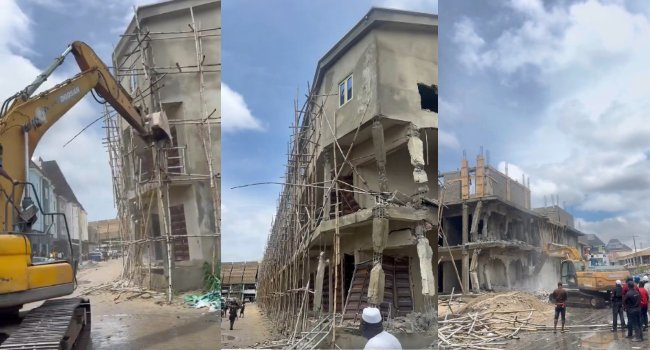THE Association of Igbo Town Unions (ASITU) has petitioned the United Nations Human Rights Council, the African Commission on Human and Peoples’ Rights, and the ECOWAS Court of Justice over what it described as the “targeted demolition of properties belonging to Igbo traders and investors in Lagos State.”
News Point Nigeria reports that addressing journalists in Umuahia, National President of ASITU, Chief Emeka Diwe, said the demolitions amounted to “economic cleansing,” warning that Nigeria was “dying slowly from the cancer of ethnic discrimination and selective justice.”
He said the move to seek international intervention became necessary after several attempts to engage Nigerian authorities failed.
“We have done this not because we lack faith in Nigerian institutions, but because those institutions have failed to address our documented grievances,” Diwe stated.
He insisted that many of the demolished structures were legally acquired and approved by Lagos authorities, countering the state government’s claim that affected buildings were situated on waterways.
Diwe said the inconsistency in enforcement and documentation procedures was sending the wrong signal to both local and foreign investors.
“They send a message to investors that property rights in Nigeria are not secure and that ethnic sentiments may influence government actions. This undermines investor confidence, job creation, and Nigeria’s image as a country guided by the rule of law.”
ASITU alleged that demolition notices in several cases were issued just days before execution, leaving property owners no room to seek legal remedy. The group listed cases where valid building approvals issued by Lagos State agencies were later disregarded by the same authorities.
“This is not law enforcement; it is the erasure of livelihoods and the violation of constitutional guarantees meant to protect all Nigerians,” the union declared.
Diwe called for calm among affected property owners, urging them to remain peaceful and lawful while the case proceeds before international bodies.
He also appealed to Igbo investors to adopt the philosophy of Aku Ruo Ulo meaning “let wealth return home” to boost regional economic resilience.
“To the Igbo business community: do not be discouraged. Build industries and invest in Igboland so that our homeland becomes an economic powerhouse that commands respect and security.”
Diwe stressed that the group’s actions were not linked to separatist agitation, but rather aimed at building equity, unity, and fairness in Nigeria.
“Our demand for justice is not about secession. It is about building a nation where no Nigerian is treated as a stranger or a target.”
ASITU confirmed that it will pursue the matter to its legal conclusion both locally and internationally.







